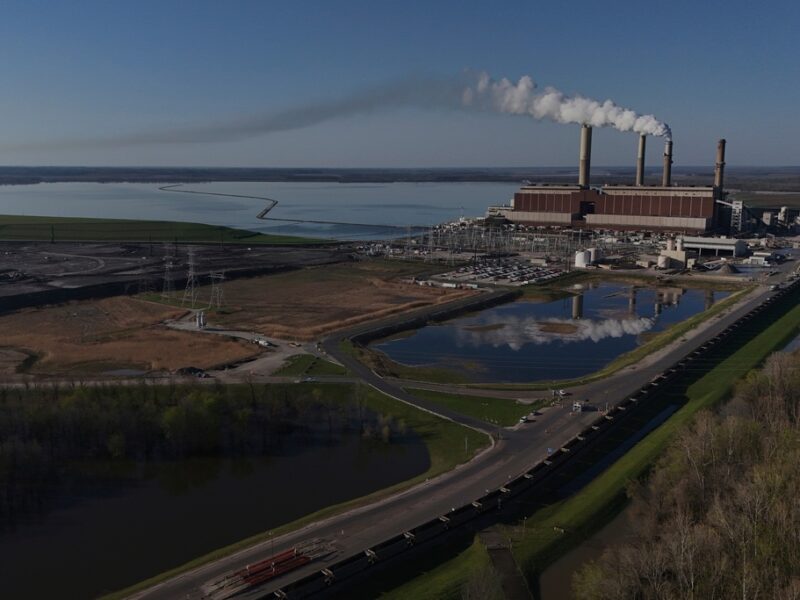Overview:
-Butterfly populations in the U.S. have plunged by 22% over the last 20 years, with habitat loss, climate change, and pesticide use as primary culprits.
-U.S. Department of Energy allocates nearly $57 million to reopening of Palisades nuclear power plant.
-The use of asbestos in the Renaissance Center could complicate demolition plans.
🦋 Butterfly populations plunge 22% over 20 years A recent study involving Michigan State University reveals that butterfly populations in the U.S. have declined by approximately 22% over the last two decades. Analyzing data from over 76,000 citizen science surveys, researchers identified significant decreases across 554 species. Primary factors contributing to this decline include habitat loss, climate change, and pesticide use. Butterflies play a vital role in pollination, and their reduction could have broader ecological implications. 📌 Source: The Detroit Free Press
😷 Renaissance Center asbestos could complicate demo plans The Detroit Renaissance Center’s potential asbestos content poses challenges for the planned demolition of two towers. Constructed in the 1970s, the complex used spray-on fireproofing materials like Monokote and Zonolite, which may contain asbestos-laden vermiculite. Identifying and safely removing these materials could significantly increase demolition costs and timelines. Experts emphasize the importance of thorough asbestos assessments to ensure compliance with safety regulations and protect public health during the demolition process. 📌 Source: The Detroit News
☢️ Palisades nuclear plant receives federal loans for restart The U.S. Department of Energy has disbursed nearly $57 million to Holtec International, part of a potential $1.52 billion loan guarantee, to support the reopening of Michigan’s Palisades nuclear power plant. The plant, which ceased operations in May 2022 after over 40 years, aims to become the first U.S. commercial reactor to restart after decommissioning. Energy Secretary Chris Wright emphasized this move aligns with President Donald Trump’s commitment to bolster domestic energy production and enhance national security. 📌 Source: The Detroit Free Press
🐟 Canada eyes effect of US federal cutbacks on Great Lakes Canadian scientists warn that U.S. federal job cuts under the Trump administration could harm the Great Lakes’ health. The elimination of positions at agencies like NOAA and the EPA threatens water quality monitoring, invasive species control, and pollution management. These reductions may lead to increased algal blooms, fish die-offs, and compromised drinking water for millions. Experts stress the importance of binational cooperation to protect this vital ecosystem amid staffing challenges. 📌 Source: CBC
🛢️ Contractor for proposed Enbridge Line 5 replacement is major Trump donor The Trump administration is accused of fast-tracking Enbridge’s Line 5 pipeline replacement in Michigan, raising environmental concerns. The project contractor, Barnard Construction, led by Trump donor Tim Barnard, plans to build a tunnel beneath the Great Lakes. Critics argue this poses significant ecological risks and question Barnard’s qualifications, citing inexperience with such complex projects and past wage violations. Activists label the situation a potential “quid pro quo,” linking political contributions to expedited approval processes. 📌 Source: The Guardian
🔌 Ann Arbor says it’s saved DTE ratepayers more than $1 billion The city of Ann Arbor reports that its interventions against DTE Energy’s proposed rate hikes have resulted in customer savings exceeding $1 billion over the past decade. By actively participating in rate cases and advocating for equitable rates, the city has mitigated potential increases. 📌 Source: MLive
📚 Data hoarders fight to preserve key information amid Trump administration takedowns In response to the Trump administration’s removal of federal data, a network of librarians and archivists is working to preserve vital information. These “data hoarders” are archiving datasets on climate change, environmental quality, and other areas vulnerable to political influence. Their efforts aim to ensure continued public access to essential information, safeguarding it from potential deletion or alteration. This grassroots movement highlights the critical role of information professionals in maintaining governmental transparency and accountability. 📌 Source: The New Yorker
THE LATEST FROM PLANET DETROIT
Judge denies Saline Township resident’s move to intervene in data center settlement
Washtenaw County judge finds resident Kathryn Haushalter’s motion to intervene in settlement came too late and would only apply to an open case.
Trump EPA loosens coal emissions standards
Limits on mercury and other toxic emissions were first put in place by the Obama administration, which cut mercury pollution by roughly 90%. The Biden administration tightened them further.
Winter blues got you down? The solution might just be at your local Detroit park.
Detroit’s harsh winters bring more than just cold; they cast a shadow over residents’ mental health. With up to 40% of Michiganders experiencing Seasonal Affective Disorder, local groups like the Detroit Riverfront Conservancy and Friends of Rouge Park are stepping up.





